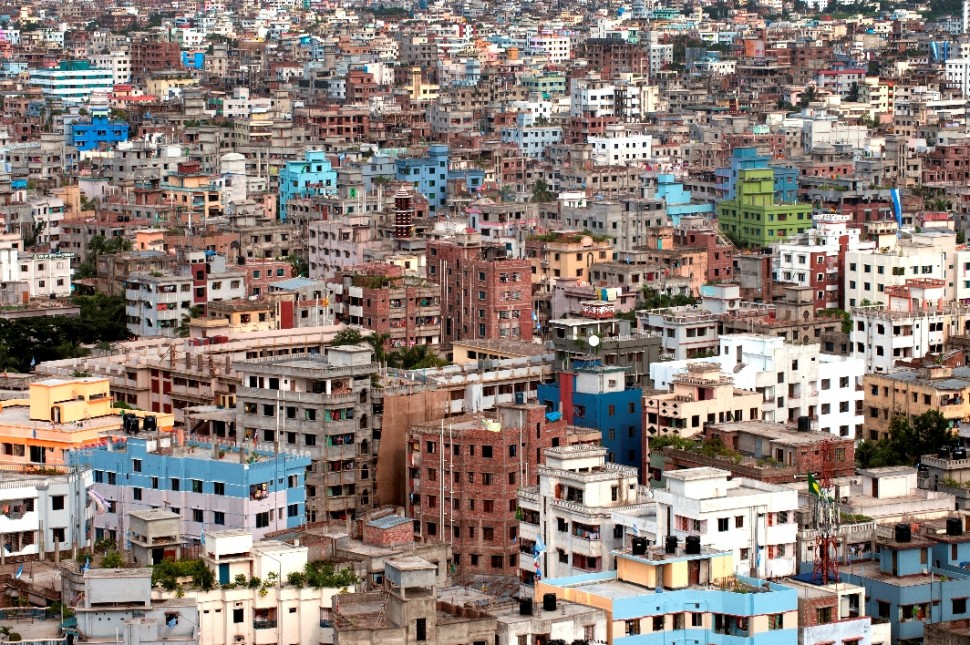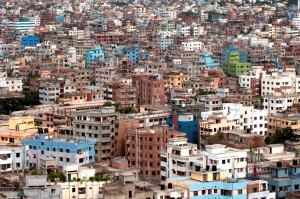The recently released Global Monitoring Report ,2013, which monitors the progress of the Millennium Development Goals (MDGs) shows that urbanization is rapidly increasing in the developing countries of the world.
Urbanization, with all its advantages, brings with it an equal number of challenges for us to deal with. Our cities have been luring people for various reasons, the basic one being the hope for a better life. People are drawn to cities for the comforts they offer, the opportunities they hold and the sleek lifestyle they promise. As cities continue to beckon people from all nooks and corners of the globe, a pertinent question remains to be answered – Are our cities crumbling under pressure?
Urbanization or rather unplanned urbanization has led to several problems. Cities have been invariably blamed for their contributions to the disturbing levels of pollution. Densely populated areas, coupled with a scant regard for environmental laws add to the woes. The urban population’s daily commute costs the planet hard. Nearly all cities in the world are battling the problem of increased toxic gas and noise pollution levels. The crowded neighbourhood of cities combined with poor sanitary conditions and inadequate waste removal create conditions favourable to the spread of infectious diseases. Huge cities create enormous amounts of waste that is mostly non biodegradable, all thanks to the generous use of plastic wares. This leads to an unprecedented increase in the garbage that stays in our landfills, polluting the soil for years to come.
Countries experiencing steady growth in population have their specific problems to deal with. With this population growth centred in and around the urban areas, the problems are further narrowed. The rapidly increasing number of arrivals to the cities are proving to be unmanageable to the authorities owing to the lack of resources and organizational skills. The rising demand for space pushes the property prices higher simultaneously paving the way for creation of slums where not even the basic amenities exist.
Living in a city is not cheap, with people having to pay the added cost of transportation and taxes for regular commodities. The swelling population makes everyday pricey and at the same time leads to an influx of low grade substitutes of almost everything included food and even medical supplies.
While the cities are a haven for opportunity seekers, the unfortunate reality is that opportunities are not handed out equally. Cities are the best places to view examples of economic inequality where the rich keep getting richer and the poor remaining the way they are. Extreme affluence and acute poverty live right next to each other in the cities. Opportunities with their limited nature translates into unemployment. With the undue pressure that we are putting on our cities each day, it is going to be nothing short of a challenge for the governing bodies to manage these sprawling metropolitan areas.
Beijing, a city of over 17 million inhabitants was, until the early 1980s, constructed as a multitude of one storey complexes built around a common courtyard that greatly facilitated contact between neighbours and fostered relations between contiguous families. Until mid 1980s only a few skyscrapers disrupted the harmony of the landscape. Today that panorama has the look and feel of the ultimate modern city. This striking change is not limited to external structures. It has dramatically altered the fabric of human relations as well.
According to Chen Xitong, a former Mayor of Beijing ” The capital is growing increasingly ugly, and is steadily losing its Chinese character. Most of the modern high rise buildings with their boring concrete facades, look like dominoes set down in the landscape without plan and imagination”
The basic health and well being of the inhabitants of the world’s cities is being robbed as a result of unregulated environmental pollution, shrinking green areas, inadequate housing, overburdened public services, a mushrooming of makeshift settlements on the outskirts lacking in both infrastructure and services and the sheer number of neighbours who do not know neighbours.
Urbanization is an inevitable part of development but unless it is strictly governed and conducted in an organized manner, this growth will spiral out of control creating more and more problems.
Click here for government certification in Management
Click here for government certification in E_governance and Project Management





22 Comments. Leave new
Good effort.
Agree
Nice…!
Nicely written!
Good article
You’ve pointed out the pros and cons very well but what is really the question is, is urbanization actually necessary?
You could have ways to reduce the cons so that it becomes a more faultless way of development.
There are pros and cons of urbanisation!
Nice article..
Very nicely written!
Very well written 🙂
I think the basic problem of all the things mentioned is exponential population growth. Unless certain methods are adopted to control the population growth, the need for the well-managed urbanization will change periodically, and this is what defeats the whole process….
Good effort!!
Nice article..!
Good job
Nice Article
nice 🙂
God Effort
Issue addressed in a simple but effective way
Very well written keep going
Nicely explained!
Very Well Wriiten 😀
GOod work 😀
great…